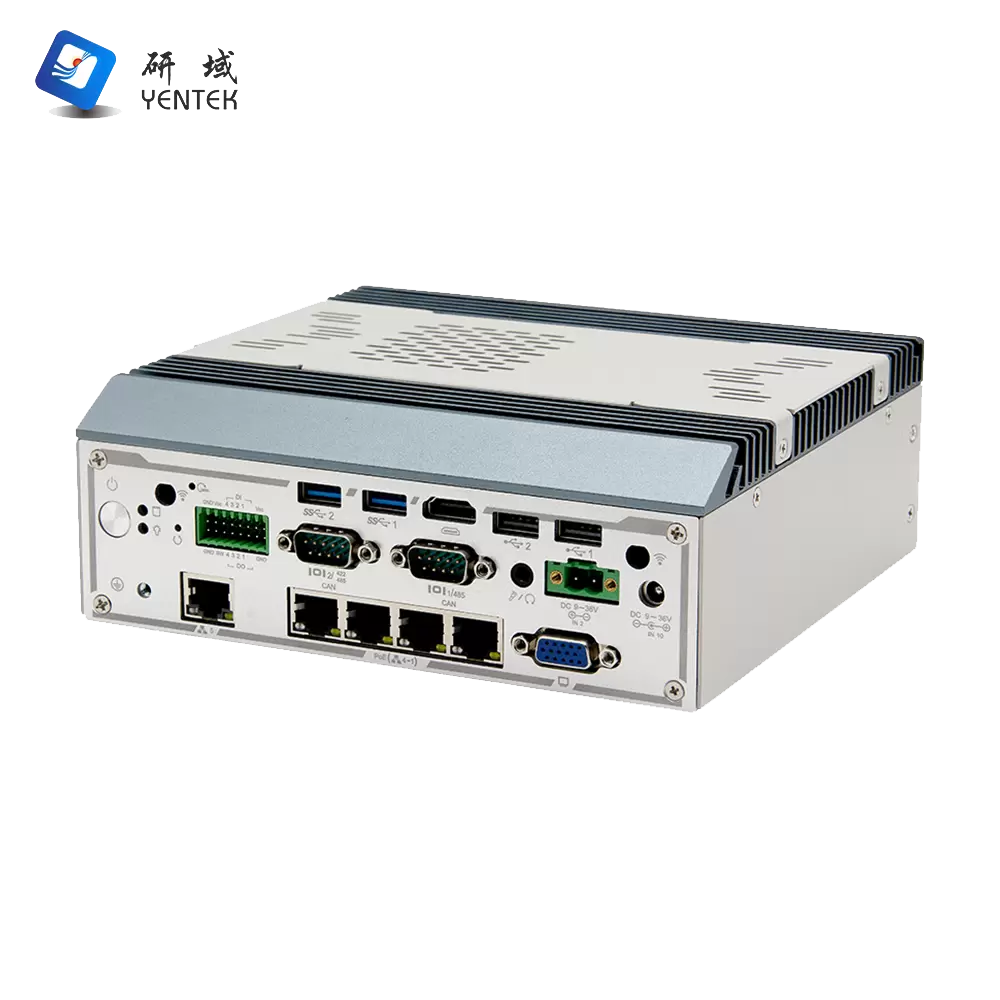Embedded PCs have become a cornerstone of modern electronic devices, providing the necessary computing power and functionality to enhance performance across various applications. As industries evolve and the demand for smarter, more efficient devices increases, the role of embedded PCs becomes ever more critical. YENTEK®, a company focused on the research, development, production, and sales of industrial computing products, exemplifies the advancements in embedded technology that drive innovation. This article explores how embedded PCs enhance the functionality of electronic devices, their key features, applications, and the future of this technology.
Understanding Embedded PCs
What is an Embedded PC?
An embedded PC is a specialized computer designed to perform dedicated functions within larger systems. Unlike traditional desktop or laptop computers, embedded PCs are optimized for specific tasks and often operate without direct user interaction. They are typically integrated into various devices and systems, providing essential processing capabilities in a compact form factor.
Key Characteristics of Embedded PCs
Compact Size: Embedded PCs are designed to be small and lightweight, making them suitable for integration into devices with limited space.
Energy Efficiency: These systems are optimized for low power consumption, allowing them to operate efficiently in environments where energy resources may be limited.
Reliability: Built to withstand harsh conditions, embedded PCs often feature rugged designs that ensure durability in industrial settings.
Real-Time Processing: Many embedded applications require real-time data processing capabilities, which embedded PCs provide through optimized hardware and software solutions.

Enhancing Functionality in Electronic Devices
1. Improved Performance
Embedded PCs enhance the performance of electronic devices by providing dedicated processing power that allows for faster computations and data handling. This is particularly important in applications where speed and responsiveness are critical.
2. Increased Connectivity
Modern embedded PCs come equipped with various connectivity options, including Ethernet, Wi-Fi, Bluetooth, and serial communication ports. This connectivity enables seamless integration with other devices and networks.
3. Enhanced Data Processing Capabilities
Embedded PCs are capable of handling large volumes of data from multiple sources simultaneously. This capability is essential for applications that require data aggregation and analysis.
4. Support for Advanced Features
With advancements in technology, embedded PCs can support complex functionalities such as machine learning algorithms and artificial intelligence (AI) applications. This capability allows devices to learn from data inputs and improve their performance over time.
5. Scalability
Embedded PC solutions can be easily scaled up or down based on application needs. This flexibility allows manufacturers to adapt their products to changing market demands without significant redesign efforts.
Applications of Embedded PCs
Embedded PCs find applications across numerous industries due to their versatility and functionality:
1. Industrial Automation
In industrial settings, embedded PCs control machinery, monitor processes, and collect data from sensors. They play a crucial role in improving operational efficiency and reducing downtime through predictive maintenance strategies.
2. Smart Transportation
Embedded PCs are integral to modern transportation systems, including traffic management solutions and intelligent transportation systems (ITS). They facilitate real-time data processing for traffic flow optimization and vehicle monitoring.
3. Healthcare
In healthcare applications, embedded PCs support medical devices such as patient monitors and imaging equipment. They enable real-time data analysis for improved patient care while ensuring compliance with regulatory standards.
4. Retail Solutions
Embedded PCs are used in point-of-sale (POS) systems and digital signage solutions within retail environments. They enhance customer experiences through efficient transaction processing and engaging advertising displays.
5. Consumer Electronics
Many consumer electronics incorporate embedded PC technology to provide enhanced functionalities such as smart features in televisions, home appliances, and wearable devices.
The Future of Embedded PC Technology
As technology continues to advance rapidly, several trends are shaping the future of embedded PC solutions:
1. Internet of Things (IoT) Integration
The integration of IoT capabilities into embedded PCs will enable smarter devices that can communicate with each other seamlessly. This trend will lead to more interconnected systems across various industries.
2. Increased Focus on Security
With rising concerns over cybersecurity threats, manufacturers will prioritize security features in embedded PC designs to protect sensitive data and ensure secure communications between devices.
3. Advancements in Processing Power
The development of more powerful processors will allow embedded PCs to handle increasingly complex tasks while maintaining energy efficiency—a crucial factor for mobile or remote applications.
4. Enhanced Customization Options
As industries demand tailored solutions that meet specific requirements, manufacturers will offer greater customization options for embedded PC configurations—allowing clients to select components that best suit their needs.
Conclusion
Embedded PCs play a vital role in enhancing the functionality of electronic devices across various sectors by providing dedicated processing power, connectivity options, advanced features, scalability, and reliability. Companies like YENTEK® are at the forefront of this technological evolution, offering innovative solutions that meet the diverse needs of modern industries.
As we move towards an increasingly connected world characterized by smart technologies and automation, the importance of embedded PC solutions will continue to grow—enabling businesses to leverage new opportunities while enhancing operational efficiency and customer experiences.
In summary, investing in high-quality embedded PC technology is essential for organizations seeking to remain competitive in today's fast-paced market landscape while embracing the future of intelligent systems that drive innovation across multiple domains.















